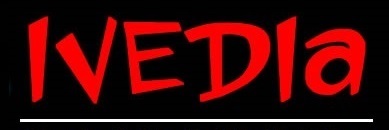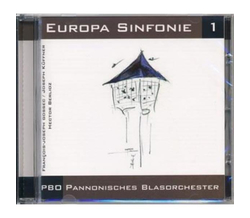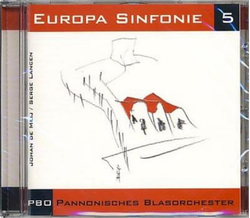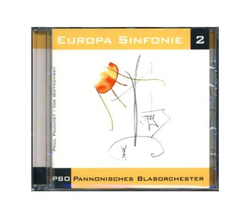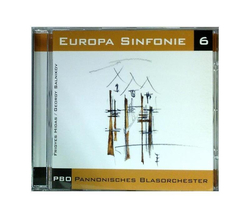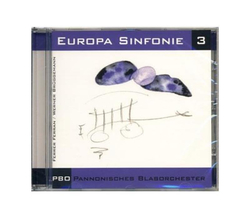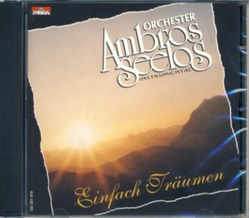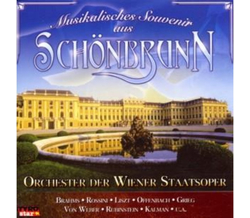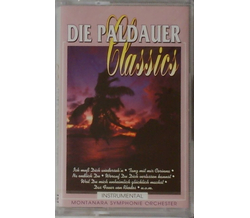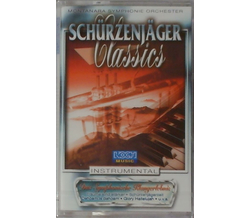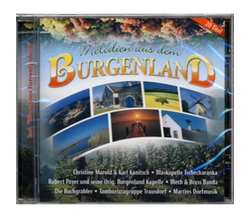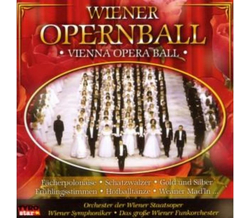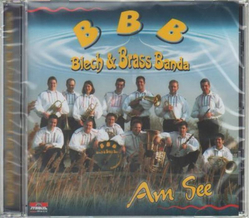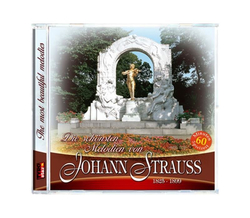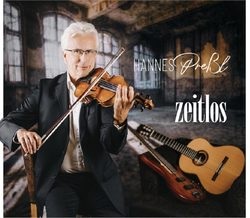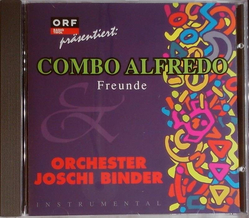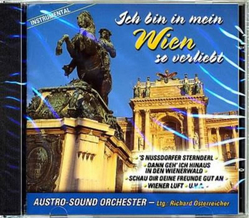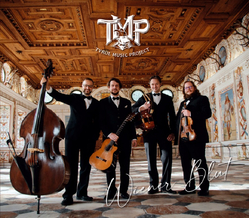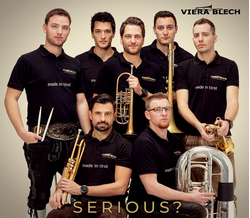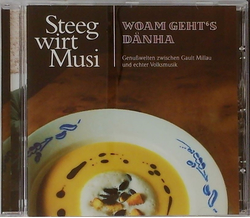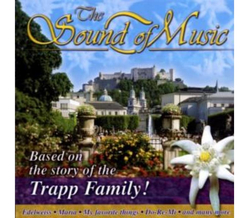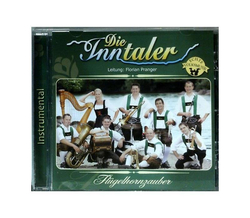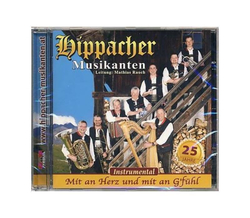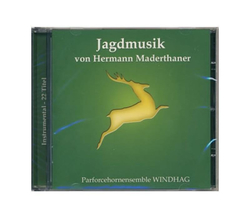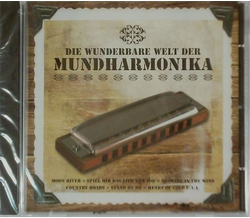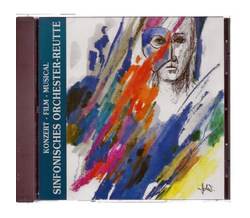Tonträgerformat: CD (Compact Disc)
Anzahl der Tonträger: 1
Label:
TYROLIS MUSIC
Genre: Sinfonie
Herkunft: Burgenland, Österreich
Sinfonien für Blasorchester und Wind Ensembles
Jan Van der Roost (geb. 1956) Sinfonia Hungarica
(1)
I Attila
(2) II Árpád
(3) III St. István
Gordon Jacob (Percifal Septimus) (England 1895 -
1984)
Symphony AD 78 (k 1978) in 3 Sätzen
(4) I
Maestoso - Allegro Risoluto
(5) II Largo
(6) III Allegro ma non troppo
Leitung: Peter Forcher
Aufnahmeleitung: Alois Loidl
Tontechnik: Karl Idl
Gesamtleitung:
Bernhard Habla
Aufnahmedatum: 28. und 29. April 2007
Aufnahmeort: ORF
Landesstudio Burgenland, Eisenstadt
Graphische Gestaltung: Klaus Kappel und
Reinhard Stangl
Titelbild: Alexander Fülöp (Telegraphenmast aus der Serie
"Sechs Motive aus dem Burgenland" 2007
The Pannonisches Blasorchester
(PBO)
The PBO was founded by Bernhard Habla (organizer) and
Peter Forcher (conductor) in 1990 and since its foundation has had a great
number of successful activities. The narre of the wind orchestra is taken from
the old Roman province Pannonia. The musicians haue all studied or are Student,
at the Institute Oberschützen of the Kunstuniversität Graz (University of Music
Graz) and other Austrian music universities.
Since its foundation, the orchestra has concentrated on original compositions
and arrangements for wind band and wind ensemble, and has been especially
successful in the performance of avant-garde musical compositions with wind and
percussion Instruments. The PBO's first performance of Fifty Eight by the
American composer John Cage (1912-1992) represents an outstanding event.
In
addition to nine CDs and numerous recordings on other sound media, performances
with mostly concert music in Austria and other countries, the PBO has since 2003
devoted itself to the performance of symphonies and symphonic music in
transcription as well as original compositions for wind band under the title
symphonic Project.
Europa-Sinfonie (Symphony of
Europe)
In cooperation with the Pannonische Forschungsstelle
(PFS) [Pannonian Research Center] of the Oberschützen Institute of the Graz
University of Music and Performing Arts, the Symphonie Project developed into
the Europa Sinfonie. Thereby the history of the Symphony, which was a rare genre
for wind bands in the nineteenth century but which is becoming increasingly
important today for wind bands, is presented on a series of CDs concentrating on
European composers. After extensive groundwork, a representative selection that
extends from works for the celebrations of the jubilee of the French Revolution
to large-scale compositions of the present was Chosen. The complete series of
six CDs is of great interest in that the conductor and the musicians of one
orchestra deal with compositions of European composers spanning more than two
hundred years - a quasi symphonic cycle in "one (Pannonian) breath."
Jan Van der Roost Sinfonia
Hungarica
The Belgian Jan Van der Roost (born 1956) studied
at the Lemmens-Institute in Leuven, where he is today busy as teacher.
Furthermore he works in Japan at the Shobi Institute of Music in Tokyo and at
the University of Arts in Nagoya. His compositions include a wide range of
genres and instrumentations. He is internationally known for his mang works for
symphonic wind band.
The Sinfonia Hungarica was commissioned and first performed by the wind band of Kiskunfélegyháza (south-east of Budapest), on March 31, 2001 conducted by the composer. The three movements are based on individuals significant in Hungary's history.
Attila (died 453), the king of the Huns, is the focus of the first movement. Because of his martial encroachments that brought him to the area of today's Italy and the brutality of his wars he was given the epithet "Hostage of God."
Árpád (c.845 ? 907), the Grand Duke who unified the Magyar tribes and was the major force in land acquisition, is considered the founder of Hungary. The music of Jan Van der Roost decribes the dream of Àpád's grandmother Emese, who predicted his life. The deseendants of Árpád, the so-called Árpáden, reigned in Hungary until 1301.
St. István (St. Stephen) (969-1038), sovereign since 997, was crowned the first Hungarian king in 1001 by Pope Silvester 11. He brought Christianity to Hungary, and was canonized by Pope Gregory VII in 1083. The music portrays the wars ending paganism with the heathen Koppány, who was drawn and quartered and sent as deterring examples to four castles in the country. After a calm interlude, orte hears the present-day national anthem by Ferenc Erkel (1810-1893), motifs heard earlier in the symphony. This hymn symbolically indicates that Hungary, after ten centuries, can confidently look to the future.
Gordon Jacob Symphonie AD
78
The Englishman Gordon (Percifal Septimus) Jacob
(1895-1984) worked as composer, arranger, conductor and teacher. He is among the
most popular and versatile British composers. He is especially well-known for
his masterful Instrumentation. At the Royal College of Music, where he taught
from 1924 to 1966, he had students like Malcolm Arnold and Irrogen Holst. His
extensive werk includes nearly 700 compositions, including mang concertos for
uncommon Instruments as well as music for wind and brass bands, and writings
about composing, orchestration, and score-reading.
The Symphony AD 78 was commissioned by the "AD Concert Band", which was founded as a youth band in 1975 by the distinguished tuba player of the Birmingham Symphony Orchestra, Arthur Doyle (1910-1991). Gordon Jacob composed this symphony at the band's request and named it "AD", the Initials of their founder. The first performance in December 1978 was condueted by Arthur Doyle. The piece slumbered unnoticed among Gordon Jacob's manuscripts until it was recorded and published in 1994 by the efforts of Troy Peterson, Geoffrey Brand and the College Band Directors National Association (CBDNA), USA.
(Bernhard Habla, translation with Raoul Camus)
Instrumentation
Piccolo/Flute: Ildiká
Juhász
Flute: Rainer Pötz (I), Manuela Preinsperger
Eb
Clarinet: Heinz Steinbauer
Bb Clarinet: Wolfgang Goller, Helge Kump
(K), Florian Rois, Peter Ringhofer, Thomas Orthaber, Alex Pongracz, Daniela
Stickler, Christoph Tiefengraber, Johanna Wirnsberger, Andreas Zinggl (I),
Sabine Zumpf
Alto Clarinet: Marie-France Sylvestre (A)
Bass Clarinet:
Fritz Borecky
Oboe: Magdalena Kogler, Carina Posch
English
Horn: Stephan Werba
Bassoon: Tímea Hérics (G,A), Stephanie
Holzschuster
Contrabassoon: Peter Janzsó
Saxophone: Peter Hübl
(Sopran), Yukiko Iwata (Tenor), Michael Krenn (Alt), Ales Logar (Bariton), Josef
Vocitko (Alt) (PV)
Trumpet/Cornet: Attila Boniszlávszky, Stefan Ebner,
Daniel Gollatz, Stefan Hutz, Thomas Promitzer
Horn: Sabine Gersthofer
(I), Ferdinand Kaiser, Karl Bichler, László Szimuly, Zoltán
Vass
Baritone/Euphonium: Verena Paul, Thomas
Zsivkovits
Trombone: Martin Ferstl, Christian Hofmann, Sascha Krobath,
Franz Maier
F Tuba: Christian Dax, Thomas Gstettner, Ervin
Reibling
BBb Tuba: Thomas Kerstner
Double Bass: Róbert
Makó
Percussion: Volkmar Bundschuh, Simon Flatz, Harald Handler,
Hans-Peter Kirbisser (I), Ferenc Takács
Timpani: Dániel
Piedl
Piano/Organ: Anikó Megyimorecz
Harp: Mona Silli
Organisation: Bernhard Habla (P), Bernd Portschy (F), Bernhard Moser (I), Franz Posch (I)
Abreviations:
A = Archivist
F = Finance
G = Secretary
General
I = Deputy of Register
K = Concertmaster
P = President
PV =
Vice-President
| Genre / Stil: | Orchester Sinfonical Music Classic Instrumental |
| Origin: | Austria |
| Artist: | Pannonisches Blasorchester PBO |
| Format: | CD Compact Disc |
| Condition overall: | New |
| State: | Burgenland |
| Production Time: | 2008 |
